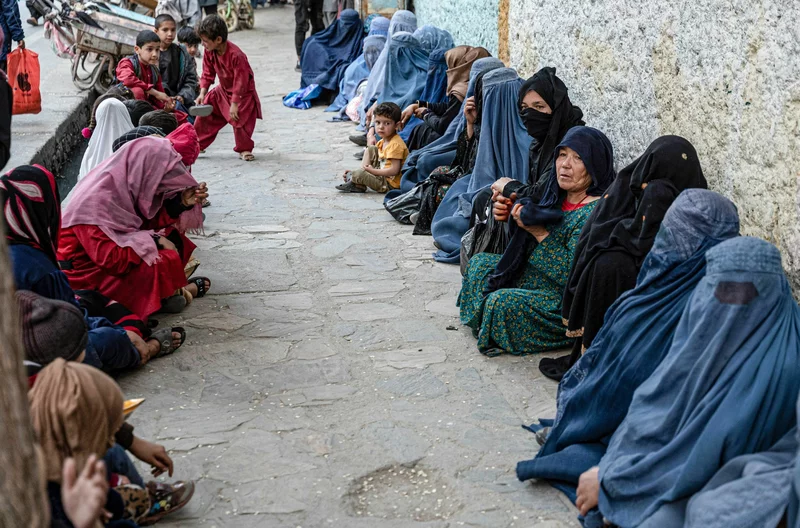The aid worker is nervous about talking to the press. He’s afraid the Taliban will threaten him for speaking out. But he believes the story he has to tell is important enough to take that risk. He asks that only his initials be used to protect his identity.
MF is on the staff of an international charity that provides food aid in northern Afghanistan. The charity gives out packages of rice, flour and oil to families who might otherwise go hungry.
The need for such food aid is more critical than ever in Afghanistan under Taliban rule. In March, the World Food Programme estimated some 20 million Afghans are going hungry, double the number of just three years ago.
But getting food aid to the right people is increasingly difficult, says MF.
Members of the local Taliban come to the charity with lists of names of people they think should get the food aid.
It’s not an official request. The Taliban ministry does not directly order the charity to comply. But these letters – or sometimes simply verbal requests – are nonetheless taken seriously.
MF believes that some of the people on the list are genuinely needy. Others, he says, are Taliban members or commanders who would not meet the charity’s criteria for receiving an aid package.
Yet the requests can’t be dismissed. “If we refuse to comply, employees are threatened, detained and even beaten on baseless charges,” says MF.
Read full report on NPR
